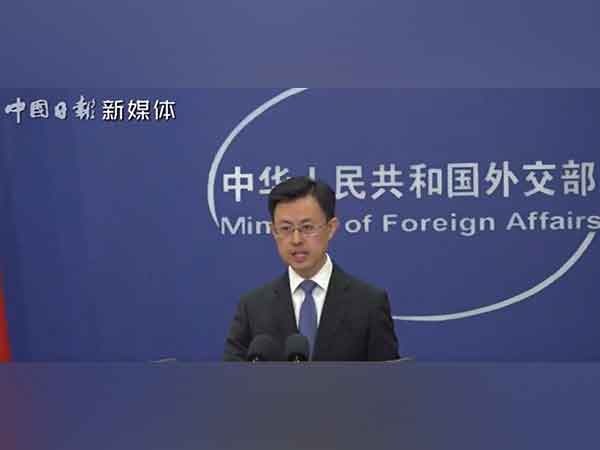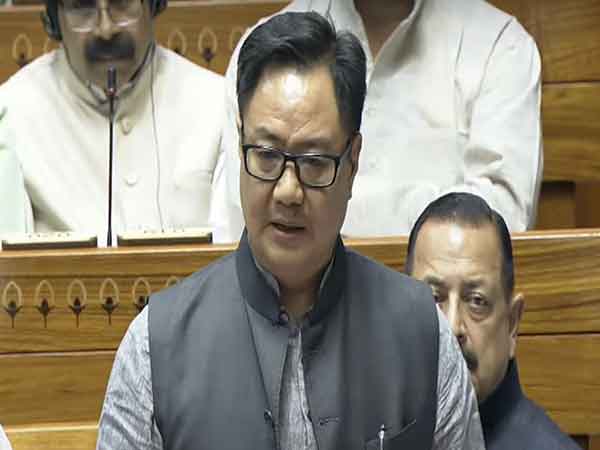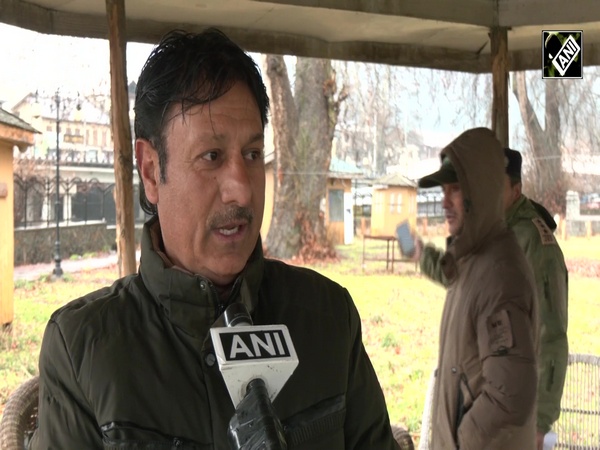“Kudos to Indian presidency…outcome exceeded expectations”: German envoy on G20
Sep 12, 2023

By Naveen Kapoor
New Delhi [India], September 12 : Germany has given a thumbs up to India for building a consensus on the G20 declaration under what it calls very difficult circumstances.
Under its G20 presidency, India pulled off a big diplomatic win as the forum adopted a consensus on declaration despite differences put forward by Russia and China.
“Kudos to the Indian presidency. It was an important presidency under the most difficult circumstances. India assumed the G20 presidency under the most difficult circumstances and managed it masterfully. My Chancellor was highly satisfied with India's leadership at the G20," German envoy to India, Philipp Ackermann, told a small group of media persons in New Delhi on Tuesday.
“The German Chancellor feels that the outcome was beyond expectations and believes that the G20 gained more weight and legitimacy in the world. There were two divergent views when we arrived for the G20. We wanted to make the summit a success under India's presidency and also wanted a mention of the Ukraine crisis, similar to the declaration adopted at the Bali summit. The Chancellor, who, himself, is a tough negotiator, said the outcome (of the New Delhi summit) exceeded all expectations,” the German envoy added.
Despite the reservations expressed by Russia and China, a consensus was reached, which is being seen as a major diplomatic triumph by India. However, some critics see it as a "watered-down" declaration.
“The first good thing in negotiations is that you don’t repeat the agreed language. Basically, Bali was not the agreed language. In Bali, some members — China and Russia — did not agree to everything (in the declaration). If you stay in the same language, it is the lowest common denominator. That’s not the case in this (New Delhi) declaration as it went further. I think it (the New Delhi Declaration) conveyed that what happened in Ukraine wasn't good. I think it is very important that you (India) mentioned that the global focus was now shifting towards the restoration of peace. The spirit of comprehensive trust for sustainable peace is reflected in the (New Delhi) declaration,” Ackermann added.
The German envoy said further that there was also a very clear and strong mention of territorial integrity. "Though Russia, as a country, wasn't mentioned (in the declaration), I would say Russia was all over it. There was a clear condemnation (of Russia). The addition of the nuclear threat part marked an advancement from Bali (declaration). The Bali statement was not in the same context,” the envoy said.
Germany is also satisfied with the declaration on climate and the mention of the phasing out of coal, the envoys said, adding that the text on climate was not "fantastic" but "satisfactory".
He also lauded the flexibility shown by the host country (India) in mentioning the phasing out of coal in the declaration.
The G20 Summit culminated successfully, with multiple bilateral meetings with world leaders and the announcement of various initiatives to pave the way for enhanced relations among the G20 member countries as well as the European Union (EU), as well as the African Union (AU), which became a full member of the bloc at the New Delhi summit.
The New Delhi Declaration was adopted unanimously on Saturday, the opening day of the 18th G20 Leaders' Summit with complete approval from China and Russia.
The "use or threat of use of nuclear weapons is inadmissible", the G20 nations said on Saturday in the declaration, with regard to the Ukraine-Russia conflict.
Without mentioning Russia, the G20 member countries recalled the Bali declaration and underscored that all states must act in a manner consistent with the purposes and principles of the UN Charter in its entirety and called for a "comprehensive, just, and durable peace in Ukraine".
It also reminded member states to "refrain from the threat, or use of force, to seek territorial acquisition".
The G20 leaders' summit in the national capital on September 9-10, was attended by more than 30 heads of state and top officials from the European Union, guest countries and 14 heads of international organisations.



















